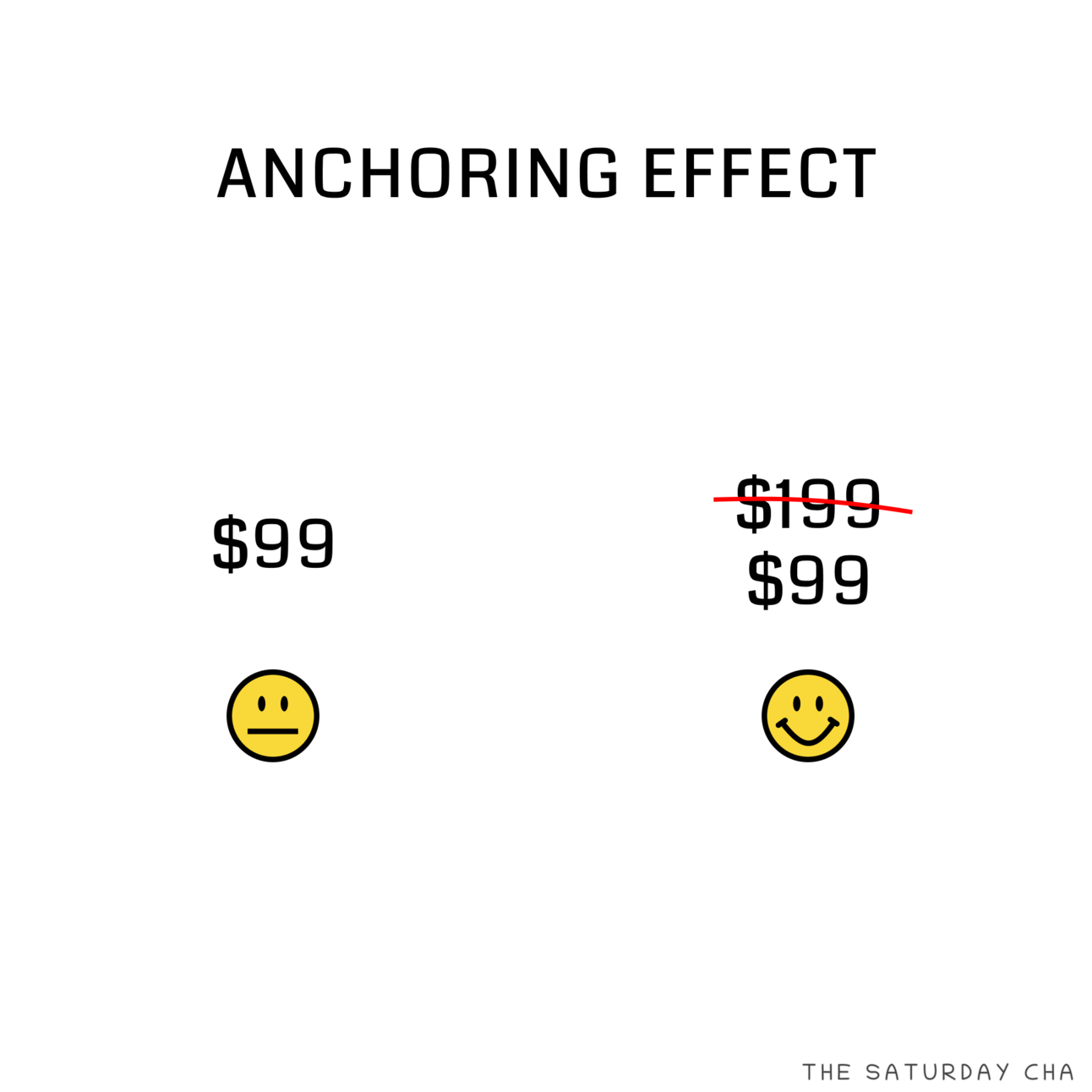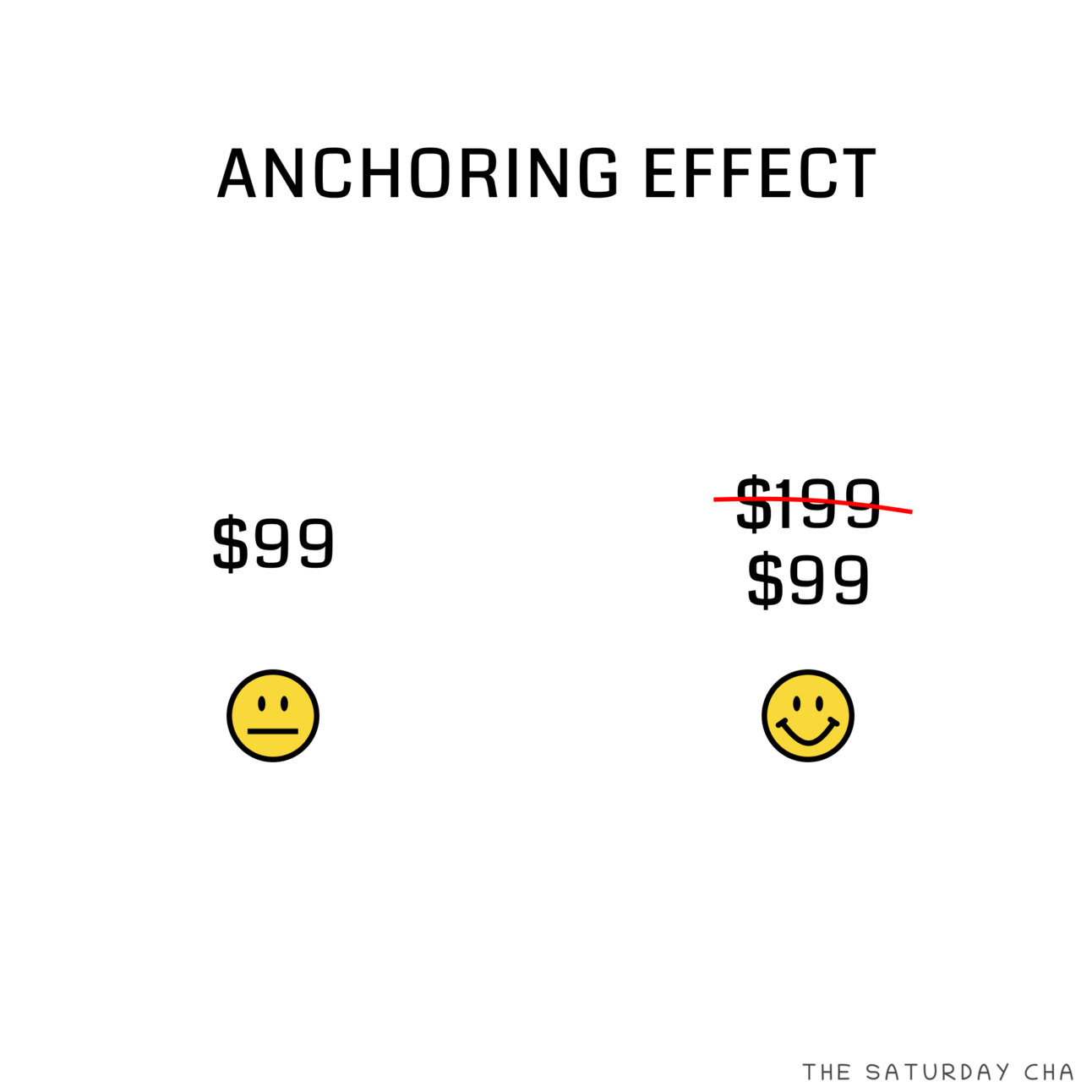After reading this article, you’ll learn:
What is the anchoring effect.
Why you should know about it.
How you can use it to your advantage.
Have you ever purchased something which was on discount, only to realize later that you don’t need the item?
Or when you got a new job offer, rather than negotiating, you blindly accepted what the HR quoted?
This is because of the anchoring effect. It is a cognitive bias which occurs when you rely on the first piece of information you encounter. You use this as an anchor to make a decision.
e.g. if someone asks you “Is the Eiffel tower taller or shorter than 2000 ft.?”, you will unconsciously use 2000 ft. as an anchor. If the next question is “How tall is the Eiffel tower”, your answer will be close to 2000 ft.
However, if someone asks you, “How tall is the Eiffel tower?”, you won’t have an “anchor” and will try to guess per your best ability.

But why should you know about this?
Avoiding costly mistakes.
From overpaying for products to accepting a bad deal, knowing about this effect will help you avoid such scenarios.
Negotiation.
Be it buying a car or renting a house, the first number quoted will serve as a powerful anchor. Recognize this. Even if the number quoted is high, you may unconsciously make a bad deal, if you do not know about this effect.
Investments.
When investing a large sum into a house or a business, don’t blindly accept what is quoted first. Knowing about anchoring effect will help you avoid bad investments.
Career.
Understanding anchoring effect will help you in salary negotiations. In a new job, it will help you negotiate what you are worth, per the market value. This is better than accepting what the HR says.
To become a better thinker.
When you understand this effect as you will see examples of it around you -From discounted items to the workplace. You can make rational decisions, stop overspending and get better opportunities in the workplace. You won’t think like the majority of the people - this is the real edge.
"The irrational behaviors we tend to repeat are not random. They are systematic and predictable."
How you can use this knowledge to your advantage:
Pause and reflect.
The next time you are faced with a decision, stop and ask yourself: is an anchor influencing your judgment? What was the first piece of information you were told about it?
Research and compare.
Request some time to provide your response. Do your research from different sources. Compare the numbers and also list out the pros and cons. This will help you ignore the anchor.
Set your own anchor.
In any negotiation, aim to have the upper hand. e.g. you’re investing in a company, do your research, understand the valuation and make your offer. In a job interview, go prepared and quote your salary range to the recruiter.
Consult with others.
You can’t be the expert in everything - understand your circle of competence. e.g. if you’re in the market for a new home, speak to people who have purchased homes recently. This will help you during the negotiation. With the research you have done, you will be in a better position.
I hope this knowledge helps in your personal and professional life. And if so, share the article with your friends and family.


